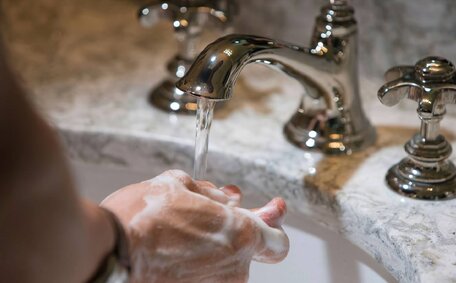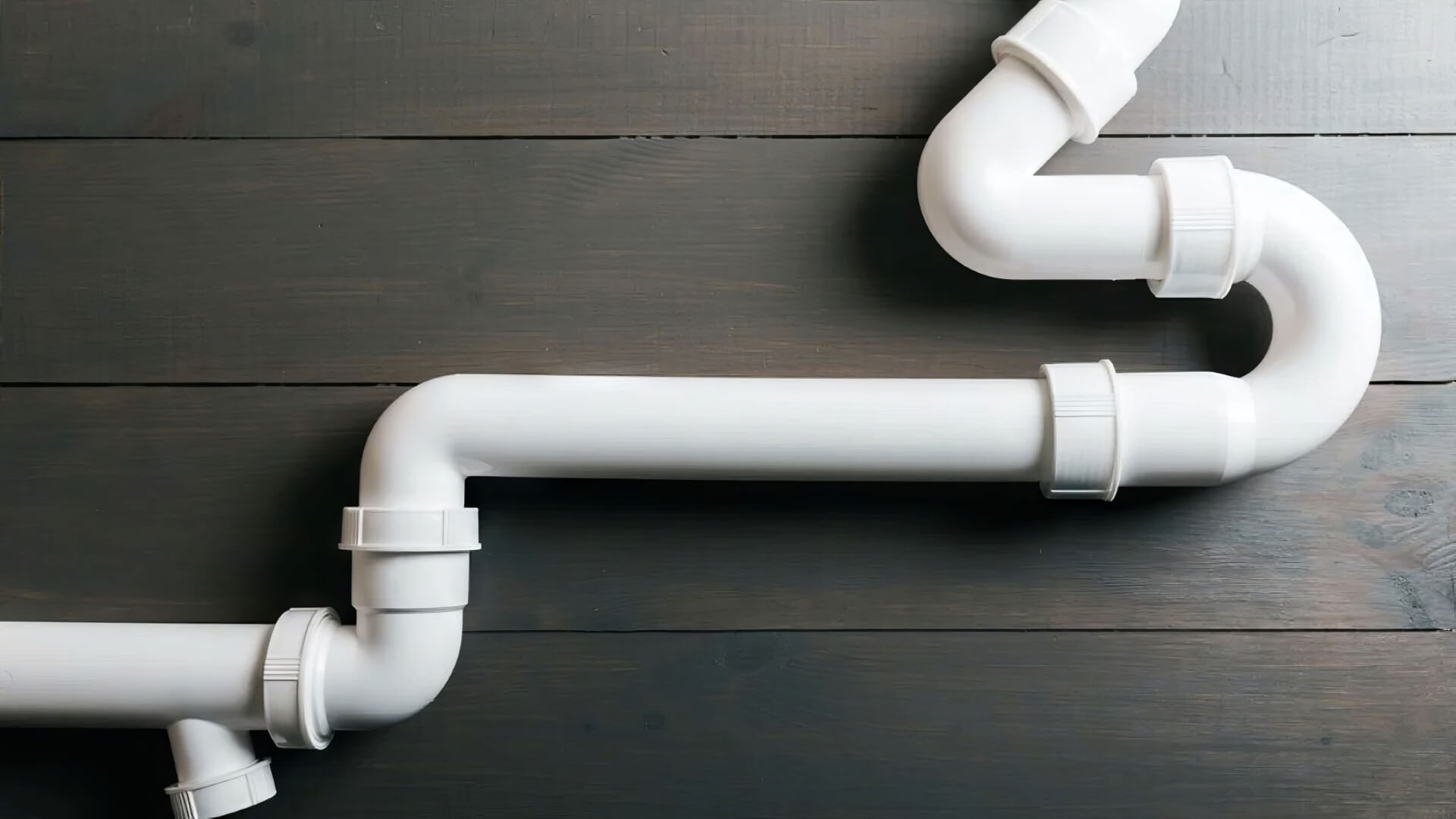Types of Chemical Drain Cleaners
Chemical drain cleaners come in three primary types:
- Acidic drain cleaners - Contain strong acids like sulfuric acid or hydrochloric acid, and are typically utilised for a blocked drain. They’re formulated to dissolve stubborn clogs made up of organic materials such as hair, grease or food. Can damage metal pipes.
- Caustic drain cleaners - Contain strong bases like lye or sodium hydroxide. They’re used to clear soap scum, hard water deposits, and other inorganic clogs, However, they can corrode skin, eyes, and metal surfaces.
- Oxidising drain cleaners - Contain oxidizers such as bleach or peroxides that can do wonders in reacting with clogs. Designed to react with organic material and dissolve it. Less corrosive than acidic cleaners.
Well-known brands like Drano liquid drain cleaners often contain harsh acids, bases, or oxidizers. While effective at clearing blockages, these cleaners can damage pipes and endanger safety if handled improperly.
How Chemical Drain Cleaners Work
Commercial drain cleaners work by using potentially harmful substances to disintegrate the material causing a clog. The primary ingredients in chemical drain cleaners are acids, bases, or oxidizers. When these potent substances come into contact with obstructions like hair or grease, chemicals can rapidly react.
The formulations used in these products ensure that clogs can readily break down and dissolve. In some cases, this reaction also generates heat, which further helps clear the drain. Caustic substances like caustic soda (sodium hydroxide) can be harsh on the skin and eyes and are used in drain cleaners not just to dissolve organic matter, but also to undergo an exothermic reaction.
While chemical reactions help clear clogs, they can also damage pipes or your plumbing system if misused. Drain cleaners containing harsh substances can corrode metal or plastic pipes and seals, potentially causing leaks over time. Care should be taken to avoid spillage or contamination when using these products.
Some chemical drain cleaners release toxic gases as they react with blockages. This requires vigilant care, as people must be mindful to protect their health and prevent inhaling dangerous fumes. Overall, the safe use of chemical drain cleaning solutions remains contentious due to risks to your home environment and should only be done carefully with the proper understanding of how these ingredients work to prevent issues within the plumbing or harm to property, pets or people.
Risks and Dangers of Using Chemical Drain Cleaners
Household drain cleaners with harsh chemicals pose considerable risks to users. The caustic chemicals in these products can inflict much more damage on pipes, harm health, and fail to keep your environment clean when mishandled.
Pipe Damage
The corrosive ingredients in drain cleaners can cause damage to materials like PVC pipes, copper, iron, and plastic over time. Studies show that 82% of plumbers report pipe damage from chemical drain cleaner usage.
The heat produced by the chemical reaction in some cleaners can also cause warping of your drain pipes. Older pipes are especially vulnerable.
Health Hazards
It’s essential to handle with care to avoid spills; harsh substances like lye or sulfuric acid in drain cleaners can cause serious burns. In 2018, over 7,500 cases of accidents with caustic drain cleaning solutions were reported to Poison Control.
Fumes released can lead to serious irritation of the skin, eyes, and other mucous membranes as well. Ingestion requires immediate medical attention, as these products are highly toxic.
Environmental Impact
Commercial drain cleaners, with substances like muriatic acid, if washed water down drain, can pollute waterways and harm ecosystems. Ingredients like bleach and acids reduce oxygen levels needed to support aquatic life. Repeated use of these chemicals can also disrupt septic systems and contaminate groundwater.
Given these hazards, it’s questionable whether any chemical drain cleaners are safe for use without extreme precautions. Using protective equipment, ensuring proper ventilation, and safe storage away from children and pets is critical.
Safety Precautions When Using Chemical Drain Cleaners
If using drain cleaners, it’s imperative that strict safety measures are followed:
- Carefully read all warning labels and instructions first
- Always wear safety gear such as rubber gloves, goggles, a mask, and long sleeves
- Work in a well-ventilated area and avoid inhaling fumes
- Never mix or use drain cleaners when you’re also using other household cleaners
- Add drain cleaner slowly and carefully to prevent splashing
- Learn more about how to keep children, pets, and other vulnerable individuals at a safe distance during and after use
- Properly dispose of any leftover solution
- Rinse with lots of water to limit residue flowing into pipes
To prevent clogs, it’s vital to install hair catchers, avoid disposing of debris in drains, and consult professionals for serious blockages rather than turning to questionable chemical solutions.
Environmental Impact of Chemical Drain Cleaners
Substances, especially chemical drain cleaners, that you put down household drains can harm the environment. The active ingredients in these products do not break down quickly and can persist in waterways.
Water Contamination
Acids, caustics, solvents, and other chemicals contained in drain cleaners can reduce oxygen levels and alter pH balances in bodies of water they enter. This potentially leads to a dwindling aquatic population where species may end up struggling to survive. Studies have shown diluted drain cleaner chemicals reducing dissolved oxygen levels in water by up to 30% within 48 hours of contamination.
Bioaccumulation in Wildlife
Drain cleaner ingredients like bleach, sodium hydroxide, and sulfuric acid cannot be processed by animals. As small aquatic organisms ingest these chemicals, they move up the food chain in higher concentrations causing issues for birds and mammals over time after repeat exposure.
Soil and Groundwater Infiltration
With repeated use over many years, small amounts of drain cleaner residues can slowly seep into surrounding soil and underground aquifers. This may jeopardise the quality of well water and leach contaminants like carcinogenic VOCs into the wider environment. Reports indicate surrounding vegetation dying off when directly exposed to chemical drain runoff.
I think it’s important that proper disposal guidelines be followed when pouring anything down your drains to minimise environmental damage. However, the safest route is to not pour chemical concoctions down your drains and to consider the expertise of a professional drain technician as a superior alternative.
Alternatives to Chemical Drain Cleaners
There are several natural, non-toxic alternatives to chemical drain cleaners that can be tried before resorting to harsh corrosive products.
Baking Soda and Vinegar
A popular natural alternative is the combination of vinegar and baking soda. Pour half a cup of baking soda down the clogged drain followed by one cup of a heated vinegar and soda mixture. The natural reaction can help get rid of grease and soap scum.
Boiling Water
Slowly pouring boiling water down the drain can help dissolve minor blockages in your sink. Take care to avoid steam burns or splash back.
Mechanical Drain Snakes
Hand-crank or electric powered drain augers/snakes can physically remove hair and debris caught in pipes without chemicals. This is effective for dislodging more persistent clogs.
Enzymatic Drain Cleaners
Enzyme-based liquid drain cleaner varieties break up organic material such as food remnants or grease using natural enzymes and bacteria instead of corrosive chemicals.
While effective for minor clogs, these methods may not suffice for severe blockages. Attempting to dissolve stubborn clogs by pouring boiling water down or using harsh products could clog your pipes further and may not fully clear the obstruction. Call a plumber if water still can’t proceed to can flow freely after employing natural drain cleaning solutions.
When to Call a Professional Plumber
When faced with a stubborn clog, it’s wise to call in a professional plumber, especially if DIY solutions have failed. Lalor Park Plumbing has extensive expertise in tackling stubborn blockages and can deploy advanced methods not available to the average homeowner.
Severe or Recurrent Clogs
If multiple attempts using boiling water, drain snakes, or natural drain cleaners have not cleared the clog, this indicates a more serious obstruction in your plumbing system. Continuing to use home solutions or resorting to chemical drain cleaners might escalate the issue.
Lalor Park Plumbing utilises commercial methods to extract solidified grease, tree roots, and larger obstructions a regular wire drain snake cannot manage. Their professionals can also assess your pipes for any cracks or collapses that might be causing recurring clogs.
Avoid Misusing Chemical Drain Cleaners
Repeated or excessive use of drain cleaners is hazardous, potentially leading to significant pipe corrosion or environmental harm. Consulting professionals can prevent the severe damage that DIY mistakes may cause.
For safe and environmentally friendly drain cleaning, reach out to Lalor Park Plumbing at 1300 349 338 or via [email protected].






